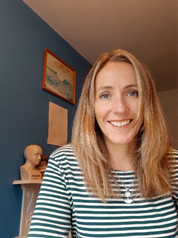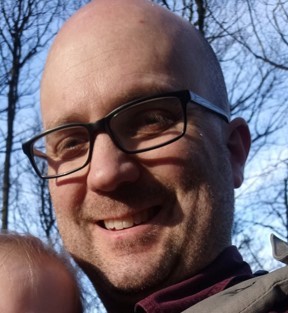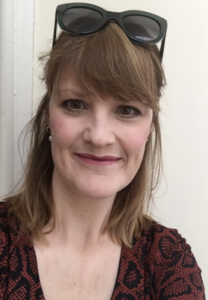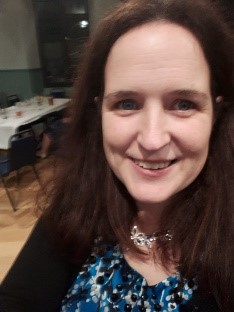Tools for Schools
Tools for Schools
Barry Sullivan
Barry has been an Educational Psychologist for over ten years and had the privilege of working with numerous staff from a large number of different types of educational settings and families. During this time he worked closely with the Child Development Centre in developing and delivering training on ADHD to primary schools. The part of that that he is most proud of was an ‘empathy session’ which included parents with lived experiences sharing the difficulties and successes that they had had with school staff. Barry’s whole professional purpose is to help improve outcomes for children and young people and he is passionate about ensuring some of the our most misunderstood children get the support and attention they need.
Ali Hirst

Ali has been working in education for 30 years as a teacher, head teacher and SENDco. During her first teaching job, which was in an inner-city primary school in Gloucester, she became interested in inclusion and the challenges a mainstream school setting presents for children with complex additional needs and this early experience has shaped her teaching career.
In her current role of SENDco in a large primary school in Exeter Ali supports parents, their children, teachers and work with other professionals to find ways to best meet the needs of our children. This work can feel like we are battling to fit a square peg in to a round hole.
In her experience there is less understanding of ADHD to say other conditions such as autism. Teachers, support staff and the wider school community is often at a loss as to how best support the behaviour of these children and lack strategies to do this well. Therefore, she is very keen to be involved in the ‘tools for schools’ project.
Lynne
Lynne is a parent to a child with additional needs. It’s been an uphill battle to get her son referred and subsequently diagnosed at 8 ½ years old. She has listened to people in various settings over the years give a rather outdated and inaccurate portrayal of ADHD. She is interested in being involved in this project as she feels there needs to be more awareness in schools to assist kids with ADHD and those suspected to have it in the classroom and support the teacher on how to do this.
Liz Hampton

Liz is a senior educational psychologist and an academic tutor at the University of Exeter. As a psychologist she is interested in all work relating to schools, parents and children aged 0 – 25, however much of her current work and interests relate to understanding the causes and support systems for children with behavioural difficulties and working with children with complex needs. She is keen to help to gather a better understanding of how adults can support children with ADHD type difficulties through a biopsychosocial perspective.
George Newman
George is a pseudo-academic in his very late 20s. In his many years hanging around higher education he has studied physics, psychology, philosophy, and even a few subjects that start with other letters. He is interested in being involved in the tools for schools project for much the same reason he has been unable to settle on a single subject of interest: he has ADHD (and ASD but who’s counting?) Having not been diagnosed until after a failed first pass at university he is acutely aware of the need to address problematic traits early in education before they can snowball into a crisis when someone makes the jump from school to university.
Amberly Brigden
Amberly is a Health Psychologist and a Lecturer in Digital Health at The University of Bristol. Her research interests include the development of interventions to support primary school children with chronic health conditions. Specifically, she is interested in school-based interventions to support these children and their families as well as exploring the potential of digital interventions (e.g. online platforms and wearables) to enhance self-management. She has a background in trial methodology and qualitative research methods.

Guy Stewart

Guy is a CAMHS Registrar (a senior trainee psychiatrist) based in Bath. He has an interest in helping young people with ADHD to fulfil their potential in educational environments. Guy is aware of the immense pressures that teachers operate under and is therefore delighted to be contributing to a project that aims to help them better support pupils with additional needs.
Francesca Horsford
Francesca Horsford has a Bsc in Exercise and Sports Science and PGCE from Exeter University, and an MA Leadership from the Institute of Education at the University of Central London. With 10 years experience as a secondary teacher and middle leader, the last 7 years held in Inner London Academy School, Francesca has had experience of dealing with special educational needs and challenging behaviour in lessons and has led the KS4 curriculum for children with flexible learning needs.
As a mother of an Autistic child with ADHD, sensory processing difficulties and symptomatic hypermobility she has spent the past few years learning about and reflecting on the complexities of these special educational needs, how to advocate and support her child and how to balance the needs of the child and the goals of the parent carer with the feasibility of implementing an EHCP and carer support under the current funding challenges that schools, and local educational authorities face. She is particularly interested in how challenging behaviour is understood and responded to in the classroom and how physical activity strategies can be used as a learning tool in classrooms and to support regulation for learning through sensory breaks.
She participates as a family faculty member of the Peninsula Childhood Disability Research Unit at the University of Exeter reviewing plain language summaries and working as a forum member on the Healthy Parent Carer Program.


Iain Randall
Iain Randall is an experienced SENCO and school adviser who currently works within the St Christopher’s MAT school improvement team. He has a PGDip in SEN from Middlesex University and contributes regularly to the National Award for SENCOs at Plymouth University. His passion is capacity-building – giving pupils, families and school staff the tools they need to overcome barriers to learning and flourishing – and is excited to be a part of this project.
Claire Chapman
Claire Chapman is an educational mental health practitioner, currently studying to become a counsellor. Claire works with children from 5-19 struggling with anxiety and low mood, a lot of the children she works with have a diagnosis of ADHD and struggle with low self-esteem. She has personal experience of ADHD as both herself and her oldest son have combined ADHD. Claire’s son has found mainstream education incredibly challenging and being so misunderstood has had a negative effect on his mental health. She really wants to be a part of increasing understanding and awareness but also by giving the schools tangible and practical tools to help the children with ADHD flourish.


Annie
Annie is the mother of a brilliant 9 year old boy who has ADHD and autism, and she is also a secondary school teacher and pupil support lead. Annie’s experience of living as a family with ADHD has completely changed her understanding of the impact of the condition and the reality of life with ADHD. Annie believes that it is really important to try to improve the support schools provide and build a more positive, accurate perception of ADHD.
Beccy and Dave
As parents of a child with ADHD Beccy and Dave recognise the need for schools to become better equipped to understand and help children like theirs. They have been surprised at how little knowledge and training teachers appear to have in working with neurodiverse children, and are very happy to contribute to the tools for schools project so that sharing their experiences will help other children in the future.

Clive Staples
Clive Staples has worked with children and young people with complex needs for thirty years across multiple settings. Most recently, he was a teacher and a SENDCo at a Steiner school and in a mainstream Academy. Currently, he is completing research for his Master’s in Psychology.
Clive believes it is important to listen to children, taking their concerns seriously. His philosophy is always to seek the underlying reasons behind any disruptive behaviour that they may present, treating all behaviour as a form communication and potential unmet need.
Experience has taught him that every child has their own set of unique strengths and range of needs; there is no ‘one size fits all approach’ that works for all. Getting to know the individual child is always his priority while using creative approaches that empower the child and create a sense of self-agency is important in Clive’s work.

Rachel Hanna
Rachel currently works as a SENDCo and has worked in education for more than 15 years. Rachel recently moved from East London where she worked in a large all-through 3-18 school and now works for a federation of two schools in East Devon.
During her NASENDCo qualification Rachel completed a research project looking at the impact of negative language on children with ADHD in the classroom. Rachel was struck by the high ratio of negative language to positive language used when managing children with ADHD and the impact this has on their social, emotional and mental health of children who just cannot help what they are doing.
Rachel has a personal interest in ADHD due to having family members who have been diagnosed. She is married and have two children aged 11 and 9. In her downtime she enjoys reading and walking.